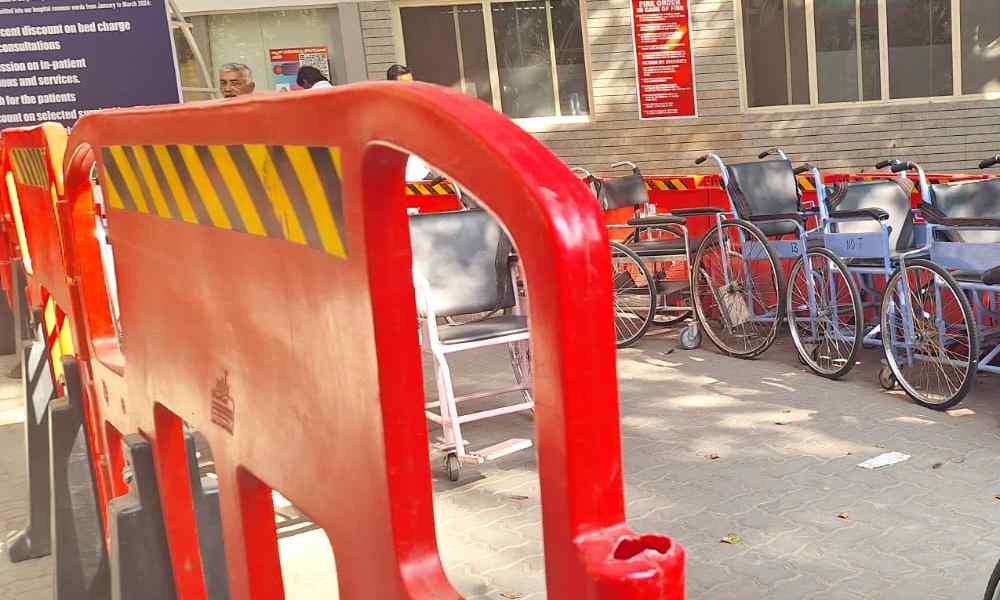The waiting list for kidney transplant sees a steady increase to over 6000 in Karnataka.
A few nephrologists in Bangalore say that kidney donors are fewer in number and that cadaveric donor retrieval rates are going down too. The possible reasons behind this are less awareness and cultural stigma.
Dr. Renuka, a kidney transplant specialist said, “The number of kidney donors is not getting better. Those voluntarily donating kidneys are mostly relatives of those who are found needing it in the nick of time. But the other kind, the cadaveric retrieval is not any better as families of the deceased oppose donations with respect to their religious and cultural beliefs.”
Dr. Saadi Jha, a kidney transplant specialist said, “Hospitals must conduct awareness drives such that people are aware of donation processes and how they can help a lot of lives. Each second there is organ retrieval all over the world but there are only a few with a perfect match and fit. The process is based on understanding the match at first, with blood type and history of the recipient and donor. The idea behind this is medically make sure that the organ placement is fit for it to continue functioning in a new body.” She added, “We receive many applicants but only a few can be fit to donate.”

Ridhima, a mother of two, had visited a government hospital in her home state of Jammu and Kashmir for her husband’s kidney transplant. She said that she came to Bangalore in search of specialized doctors to help with the situation as he had been on the waiting list for over three years. She said, “In hope of finding a better solution to this ongoing struggle, we as a family came here. We are still waiting to hear from doctors as the condition of my husband is rapidly deteriorating.”
Dr. Prassana .K from Victoria hospital said, “As a government hospital, we get a few recipients for organ donations but few voluntary donors.” He explained that this could be due to the fact that both the donor and the recipient have to sign bonds and legalise the transplant. They are also worried about finding the right match with regard to blood type and organ history typing.
Dr. Sanjay S, a nephrologist said, “Media coverage has definitely helped in the process of letting people know that organ donation can save several lives. On the other hand, organs like the kidney should be transplanted when it is alive and not beyond that unless there is a slim chance of absolute retrieval. There are so many cases where cadaveric retrieval has failed due to unhealthy habits of the deceased when they were alive.” He added, “It may not always be medical reasons due to failure behind organ retrieval.” Dr. Sanjay explained that families sometimes delay the process due to their strong religious beliefs and have to be counselled which might take a long time.
Dr. Jha also said that the rate of transplants is higher only in private hospitals and much lower in government hospitals as awareness is very poor. She said, “Over 6,000 are on the waiting list as per my knowledge, the numbers are this high due to a possibly slower system of information and data collection with regard to active donors and matches.”
Akshaya Vikas, a 44- year- old who had a successful kidney transplant in 2017 said, “I was on a waiting list for both my kidney and liver for more than five years and have struggled beyond imagination during those years.” She added, “My family was against me getting a transplant as they did not believe in the idea of another person’s organ inside me. However, after over four months of consulting and advice, my parents understood the practicality of a transplant. We are grateful that we went along with the transplant today.”
V. Shriharsha, a donor said, “I donated a kidney for my friend’s transplant surgery in 2022. His relatives kept getting tested to help him but to no avail. It was completely a mere coincidence that I got tested and eventually even matched with Jerush (name changed).” He added, “I have seen him wait for a long time but it was sad to see that doctors stated that only people who have potential to survive are given the kidney or any organ for that matter.”
Dr. Priya, a public health expert stressed the need for education camps to make people aware of the donation process. She explained, “Organ donors are told that only people who have the potential of holding the organ in good shape in order to survive are given the choice of a transplant. A lot of individuals are hesitant to donate not knowing who the organ is given to.”




